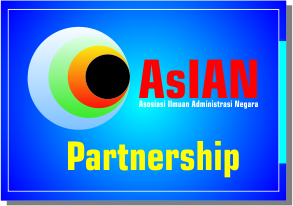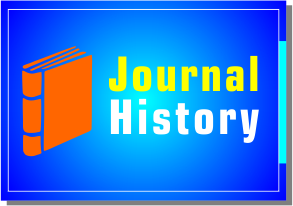Implementasi Kebijakan Pengadaan Barang/Jasa Pemerintah melalui E-Procurement pada Layanan Pengadaan Secara Elektronik Kota Depok
DOI:
https://doi.org/10.31334/transparansi.v5i1.2231Keywords:
Policy Implementation, E-Procurement, Electronic Procurement Services,Abstract
This study aims to analyze the implementation of the Government's Goods/Services Procurement Policy through E-Procurement at the Depok City Electronic Procurement Service (LPSE). This is based on several problems that occur in the procurement of goods and services in the city of Depok, such as: high cases of corruption from the types of cases of procurement of goods/services in recent years, procurement of goods and services takes a long time, there is potential fraud in the procurement process (either procurement of goods and services) in recent years. The theory of this research uses the theory of policy implementation model by Edwards III with 4 (four) indicators including: communication, resources, disposition and bureaucratic structure. The research design used is a qualitative approach with a descriptive method. Methods of data collection is done by interview, observation and documentation. This study found that the implementation of government goods/services procurement policies through e-procurement in Depok City Electronic Procurement Services was generally quite good. However, there are still several aspects that become obstacles such as: human error that causes auction failure, servers that sometimes go down, accountability for providing information on the Terms of Reference (KAK) to providers of goods/services before being published in the Electronic Procurement System (SPSE), and the potential for fraud, due to the role of the Goods/services Procurement Unit. (UKPBJ) only until the process of winning the tender. This study provides several recommendations which include: Minimizing the potential for human error by LPSE, improving server capacity and quality, increasing understanding of integrity to all employees within LPSE, and increasing the role of UKPBJReferences
Ani, L., Mulyadi, J. M. V and Pratowo, D. (2020) ‘Analisis Faktor-Faktor yang Mempengaruhi Penyerapan Anggaran Belanja dengan Perencanaan Anggaran sebagai Pemoderasi pada Pemerintah Kota Depok Tahun 2013-2017.’, Ekobisman-Jurnal Ekonomi Bisnis dan Manajemen, 5(1), pp. 1–16.
Bobowski, S. and Gola, J. (2018) ‘E-procurement in the European Union’, The Asia-Pacific Journal of European Union Studies, materiaÅ‚ powielony zÅ‚ożony do druku, 17(1–2018), pp. 23–35.
Dror, Y. (2017) Public Policymaking: Reexamined. Routledge.
Edward III, G. C. (1980) Implementing public policy. Congressional Quarterly Press.
Fadhillah, N. and Juwono, V. (2020) ‘Application of Five Stream Framework Concept in E-Procurement Implementation in Depok: A Review of Literature’, Jurnal Administrasi Publik, 18(1), pp. 121–141.
Gardenal, F. (2013) ‘A model to measure e-procurement impacts on organizational performance’, Journal of public procurement. Emerald Publishing Limited.
Howlett, M. (2019) ‘Moving policy implementation theory forward: A multiple streams/critical juncture approach’, Public Policy and Administration. SAGE Publications Sage UK: London, England, 34(4), pp. 405–430.
Van Hulst, M. and Yanow, D. (2016) ‘From policy “frames†to “framing†theorizing a more dynamic, political approach’, The American review of public administration. SAGE Publications Sage CA: Los Angeles, CA, 46(1), pp. 92–112.
Hupe, P. L. and Hill, M. J. (2016) ‘“And the rest is implementation.â€Comparing approaches to what happens in policy processes beyond Great Expectations’, Public Policy and Administration. SAGE Publications Sage UK: London, England, 31(2), pp. 103–121.
Korupsi, K. P. (2021) TPK Berdasarkan Jenis Perkara. Available at: https://acch.kpk.go.id/id/statistik/tindak-pidana-korupsi/tpk-berdasarkan-jenis-perkara (Accessed: 30 March 2022).
Kurnia, A. W., Sundari, S. and Purwanto, D. A. (2020) ‘Implementasi Kebijakan Cadangan Pangan Nasional dalam Kondisi Keadaan Darurat di Badan Ketahanan Pangan Guna Mendukung Pertahanan Negara’, Manajemen Pertahanan: Jurnal Pemikiran dan Penelitian Manajemen Pertahanan, 6(1).
Lestari, B. A. and Jannah, L. M. (2019) ‘Tinjauan Perubahan Kebijakan Pengadaan Barang Dan Jasa Pemerintah Dalam Perpres Nomor 16 Tahun 2018’, Jurnal Administrasi Dan Manajemen, 9(1), pp. 10–20.
Liu, H. K. (2017) ‘Exploring online engagement in public policy consultation: The crowd or the few?’, Australian Journal of Public Administration. Wiley Online Library, 76(1), pp. 33–47.
LKPP (2018) Peraturan Lembaga Kebijakan Pengadaan Barang/Jasa Pemerintah Nomor 9 Tahun 2018 Tentang Pedoman Pelaksanaan Pengadaan Barang/Jasa Melalui Penyedia. Indonesia. Available at: https://peraturan.bpk.go.id/Home/Details/156035/peraturan-lkpp-lkpp-no-9-tahun-2018.
Maria, E. and Halim, A. (2021) ‘E-government dan Korupsi: Studi di Pemerintah Daerah, Indonesia dari Perspektif Teori Keagenan’, EKUITAS (Jurnal Ekonomi Dan Keuangan), 5(1), pp. 40–58.
McConnell, A. and t Hart, P. (2019) ‘Inaction and public policy: understanding why policymakers “do nothing‒, Policy sciences. Springer, 52(4), pp. 645–661.
Mohd Nawi, M. N. et al. (2017) ‘E-procurement in Malaysian construction industry: benefits and challenges in implementation’, International Journal of Supply Chain Management (IJSCM). ExcelingTech Publishers, 6(1), pp. 209–213.
Natesan, S. D. and Marathe, R. R. (2015) ‘Literature review of public policy implementation’, International Journal of Public Policy. Inderscience Publishers (IEL), 11(4–6), pp. 219–241.
Pemerintah RI (2018) Peraturan Presiden Republik Indonesia Nomor 16 Tahun 2018 Tentang Pengadaan Barang/Jasa Pemerintah. Indonesia. Available at: https://www.lhokseumawekota.go.id/aturan/Peraturan Presiden Nomor 16 Tahun 2018_1001_1.pdf.
Pemerintah RI (2021) Peraturan Presiden Nomor 12 Tahun 2021 tentang Perubahan atas Peraturan Presiden Nomor 16 Tahun 2018 tentang Pengadaan Barang/Jasa Pemerintah. Indonesia. Available at: https://peraturan.bpk.go.id/Home/Details/161828/perpres-no-12-tahun-2021.
Pülzl, H. and Treib, O. (2017) ‘Implementing public policy’, in Handbook of public policy analysis. Routledge, pp. 115–134.
Rahman, A. et al. (2018) ‘Does Leadership Background Matter In Performance Of Local Government?’, in 2018 Annual Conference of Asian Association for Public Administration:" Reinventing Public Administration in a Globalized World: A Non-Western Perspective"(AAPA 2018). Atlantis Press, pp. 541–550.
Rahman, A. (2021) ‘Quo Vadis Visi Negara Maju 2045’, Book Chapter, p. 1.
Rahman, A., Satispi, E. and Adiyasha, D. L. (2020) ‘Perbandingan E-Government Antara Singapura Dan Jepang : Perspektif Determinan Dan Perannya Dalam Mengefektifkan Pemerintahan Dan Mengendalikan Korupsi Program Studi Administrasi Publik , Universitas Muhammadiyah Jakarta , Indonesia Program Studi Administr’, Kolaborasi : Jurnal Administrasi Publik, 6(2), pp. 177–199.
Samad, M. A., Zuada, L. H. and Baculu, V. A. I. (2020) ‘Implementation of E-Government Policies’, in 2nd Annual International Conference on Business and Public Administration (AICoBPA 2019). Atlantis Press, pp. 76–79.
Sinuraya, T. S. D. and Suwarno, P. (2021) ‘Strategi Pemberantasan dan Pencegahan Korupsi di Indonesia dalam Masa Pandemi Covid-19’, Jurnal Education and Development, 9(3), pp. 125–130.
Suyatmiko, W. H. (2021) ‘Memaknai Turunnya Skor Indeks Persepsi Korupsi Indonesia Tahun 2020’, Integritas: Jurnal Antikorupsi, 7(1), pp. 161–178.
Downloads
Published
Issue
Section
License

This work is licensed under a Creative Commons Attribution-ShareAlike 4.0 International License
Please find the rights and licenses in Transparansi : Jurnal Ilmiah Ilmu Administrasi By submitting the article/manuscript of the article, the author(s) agree with this policy. No specific document sign-off is required.
- License
The commercial use of the article will be governed by the Creative Commons Attribution license as currently displayed on Creative Commons Attribution-ShareAlike 4.0 International License.
2. Author(s)' Warranties
The author warrants that the article is original, written by stated author(s), has not been published before, contains no unlawful statements, does not infringe the rights of others, is subject to copyright that is vested exclusively in the author and free of any third party rights, and that any necessary written permissions to quote from other sources have been obtained by the author(s).
3. User Rights
Transparansi : Jurnal Ilmiah Ilmu Administrasi spirit is to disseminate articles published are as free as possible. Under the Creative Commons license, Transparansi : Jurnal Ilmiah Ilmu Administrasi permits users to copy, distribute, display, and perform the work for non-commercial purposes only. Users will also need to attribute authors and Transparansi : Jurnal Ilmiah Ilmu Administrasi on distributing works in the journal and other media of publications.
4. Co-Authorship
If the article was jointly prepared by more than one author, any authors submitting the manuscript warrants that he/she has been authorized by all co-authors to be agreed on this copyright and license notice (agreement) on their behalf, and agrees to inform his/her co-authors of the terms of this policy. Transparansi : Jurnal Ilmiah Ilmu Administrasi will not be held liable for anything that may arise due to the author(s) internal dispute. Transparansi : Jurnal Ilmiah Ilmu Administrasi will only communicate with the corresponding author.
5. Miscellaneous
Transparansi : Jurnal Ilmiah Ilmu Administrasi will publish the article (or have it published) in the journal if the article’s editorial process is successfully completed. Transparansi : Jurnal Ilmiah Ilmu Administrasi editors may modify the article to a style of punctuation, spelling, capitalization, referencing and usage that deems appropriate. The author acknowledges that the article may be published so that it will be publicly accessible and such access will be free of charge for the readers as mentioned in point 3.
Every accepted manuscript should be accompanied by "Copyright Transfer Agreement"prior to the article publication.











